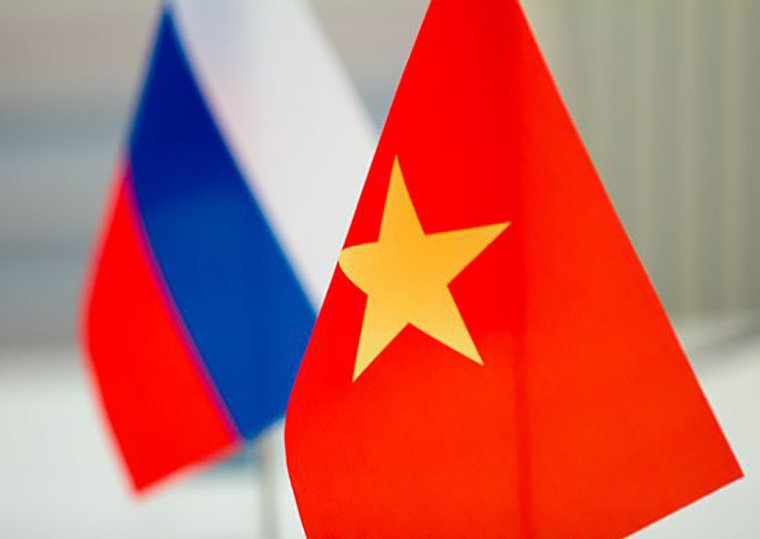
Rosatom organized a seminar in Hanoi
back to contentsThe seminar brought together Vietnamese companies and government agencies, among them the Ministry of Science and Technology, Ministry of Natural Resources and Environment, Ministry of Industry and Trade, Vietnam Atomic Energy Agency and Vietnam Electricity (EVN). The event was opened by VINATOM President Tran Chi Thanh who stressed the importance of environmental issues in developing the nuclear power industry. “Public acceptance of nuclear power is no less important than technical and environmental aspects of the first nuclear station in Vietnam. On 28 February 2013, the Prime Minister approved the Nuclear Power Development Communication Plan 2020 aiming at improved public awareness of the nature, necessity and advantages of nuclear power in terms of national energy security, economic development and environmental safety. Russia and other countries assist Vietnam in ensuring acceptable safety levels of the nuclear power plant for the environment.”
Representatives of Rosatom Group companies spoke at the seminar about their expertise in ensuring radiation safety of national and international civil nuclear projects.
Clean energy
A representative of Atomproekt (Rosatom’s nuclear engineering designer and nuclear technology developer) spoke about safety and security of Russian-designed VVER reactors. A representative of Rosenergoatom (an operator of Russian nuclear power plants) told the audience about environmental control and protection measures at the existing Russian nuclear stations. According to the speaker, nuclear plants in Russia and other countries have reduced CO2 emissions by more than 15 billion metric tons for 60 years of operation. This is roughly corresponding to China’s CO2 emissions for two years or emissions of all other Asian countries for four years.
“Atomic energy is clean energy. However, this should not be accepted as a given – a systematic, determined effort is needed to ensure safety, especially for emerging nuclear countries. As a responsible vendor, we are prepared to share our expertise in the field with Vietnamese partners,” said Yegor Simonov, head of Rosatom’s representative office in Southeast Asia.
According to him, maintaining nuclear safety is as important as ensuring public acceptance of nuclear energy.
Community education
A special session of the seminar was devoted to Rosatom’s experience in organizing public awareness campaigns in Russia and abroad.
Rosatom’s representatives demonstrated the most vivid examples from the previous campaigns, among them a fishing contest at NPP cooling ponds, educational videos, TV programs, mobile applications, and press tours of nuclear facilities with Vietnamese media as regular guest. Rosatom provides comprehensive support to emerging nuclear countries, Vietnam included, in organizing public awareness events. For instance, Hanoi hosts the Nuclear Information Center established by Rosatom. Its Director and Professor of Hanoi Polytechnic University Ha Manh Thu noted, “Statistics show that over 80% of people change their opinion about nuclear technologies after visiting information centers.”
Vietnam adopts best practices
Meanwhile, a Vietnamese delegation visited the construction site of Leningrad NPP. This was not the first visit – guest from the far-off country had come for the third time. Their close interest in the facility is generated by the desire to tap to the Russian expertise in the construction of nuclear stations based on the AES-2006 project design.
“Key features of this project design selected for the first Vietnamese nuclear station are safety, reliability and efficiency,” stressed Yuri Galanchuk, Deputy CEO of Leningrad NPP in charge of new construction. “This design incorporates Russian and international standards supported by IAEA recommendations as well as post-Fukushima safety enhancement requirements.”
Galanchuk also spoke at the meeting about the importance of professional staff training for nuclear power plants under construction. Trained staff can take part in the construction process by supervising equipment installation and commissioning, as it is done at the Leningrad NPP, and then take control of the sophisticated facility knowing it inside out.
Members of the Vietnamese delegation studied the project design and visited all major facilities on the Unit 1 construction site.
“We are very much impressed with the scale and speed of Leningrad NPP construction,” concluded Nguyen Hang, Deputy Director of the Science, Education, Culture and Social Policy Department of the Vietnamese Government. “Our country is about to go ahead with building the first nuclear station in Ninh Thuận province. That is why our visit here is important and useful. We know that we will need many qualified employees to achieve the goal we have set. We count on the Russian support on our way towards the goal.”




